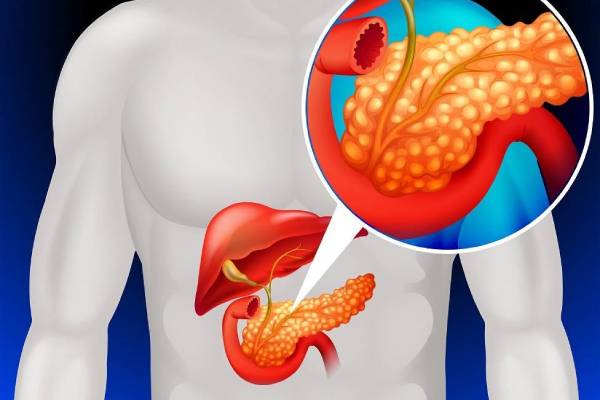HPB Surgeon in Hyderabad
HPB surgery stands for Hepato-Pancreato-Biliary surgery. It is a specialized field of surgery focused on the diagnosis, treatment, and management of diseases. Dr. MSS Keerthi is an expert in Hepato-Pancreato-Biliary surgery . With 15+ experience in this field makes her the best HPB surgeon in Hyderabad. She has specialization in Minimal Access Surgery i.e. Laparoscopic and robotic Surgery to offer her patients a smooth & pain-free recovery.

Currently, she works at Evoke clinic and Tulasi Hospital in Secunderabad, Telangana, there she is renowned as the best surgical oncologist in Hyderabad. So, if you’re in need of surgical treatment for any HPB-related disease, you can trust Dr. Keerthi to provide the best possible care.
What is HPB surgery ?
Hepatopancreatobiliary (HPB) surgery is a specialized field of surgery that focuses on the diagnosis and treatment of diseases and conditions related to the liver, pancreas, and biliary system. It encompasses a wide range of complex surgical procedures to address a variety of conditions affecting these vital organs.
HPB Conditions Treated by Dr. M.S.S. Keerthi
- Liver & Pancreatic Cancer
- Gallbladder Cancer
- Liver and Pancreatic Cysts
- Biliary Tract Disorders
Tests for Diagnosing Hepato-Pancreato-Biliary Diseases:
The Robotic Onco Surgeon in Hyderabad Dr MSS Keerthi suggest the necessity of common tests for diagnosing hepato-pancreato-biliary (HPB) diseases. These tests are crucial for accurate diagnosis and timely treatment of HPB diseases.
- Blood Tests Estimate liver and pancreatic function, enzymes, bilirubin situations, and tumor labels.
- Imaging Tests Ultrasound, CT scan, MRI, MRCP, EUS, and ERCP for detailed visualization of liver, pancreas, bile tubes, and blood vessels.
- Liver Biopsy Obtains liver tissue for microscopic examination to diagnose liver conditions.
- Pancreatic Biopsy Samples pancreatic tissue to confirm diagnoses like pancreatic cancer.
- Cholangiography Visualizes bile ducts using ways like PTC or IOC to diagnose strictures, stones, or tumors
Different types of Hepato-Pancreato-Biliary surgeries:
Dr. MSS Keerthi is an expert Laparoscopic surgeon in Hyderabad and recommends surgical interventions based on individual patient health conditions. Some primary types of surgeries include:
- Laparoscopic Subtotal Cholecystectomy: It is a safe and established procedure for managing characteristic gallstone disorder. It’s particularly profitable for challenging cases where there is a threat of serious vascular or bile duct injuries. Dr. M.S.S. Keerthi possesses extensive expertise in this procedure, having successfully managed multitudinous complex cases.
- Laparoscopic Common Bile Duct( CBD) Exploration: It is an effective and safe system to investigate possible obstructions in the bile duct, similar as stones. However, bile duct blockages can lead to complications like jaundice or bile duct infections, challenging immediate surgical intervention, If left undressed.
- Laparoscopic Cystogastrostomy: It is a minimally invasive surgical approach used to address pancreatic pseudocysts, defined by the accumulation of leaked pancreatic fluids. Dr. M.S.S. Keerthi utilizes advanced laparoscopic techniques to drain pseudocysts, enhancing recovery times and minimizing post-surgery discomfort for cases.
- Open HPB Cancer Surgeries: For hepato- pancreatic- biliary( HPB) cancers, including those affecting the bile tubes, gallbladder, and pancreas, surgery remains a primary treatment option .Dr. M.S.S. Keerthi, HPB Surgeon in Hyderabad, has successfully performed open and minimally invasive HPB cancer surgeries, delivering favorable issues for cases.
Causesog HPB surgery
HPB surgery is recommended for various reasons, including:
- Liver Conditions: These may include liver tumors (both benign and malignant), liver cysts, liver abscesses, and conditions such as cirrhosis and hepatic hemangiomas.
- Pancreatic Conditions: This involves disorders and tumors of the pancreas, such as pancreatic cancer, pancreatitis, cysts, and neuroendocrine tumors.
- Biliary Conditions: These encompass diseases and blockages of the biliary system, such as gallstones, biliary strictures, and choledochal cysts.
- Trauma or Injury: HPB surgery may be necessary to treat traumatic injuries to the liver, pancreas, or biliary system caused by accidents or other external factors.
Symptoms of HPB surgery
As per, Dr. M.S.S. Keerthi symptoms of HPB conditions can vary widely depending on the specific disorder. Common symptoms may include:
- Abdominal Pain: This is a common symptom for many HPB conditions, particularly when there is an obstruction, inflammation, or a tumor in the affected organ.
- Jaundice: Jaundice is a yellowing of the skin and eyes and is often associated with liver or biliary problems.
- Digestive Issues: Problems with digestion, such as diarrhea, nausea, and vomiting, can be indicative of pancreatic disorders.
- Weight Loss: Unexplained weight loss may be a symptom of various HPB conditions, including cancer.
- Fatigue: Chronic fatigue can be a result of liver and pancreatic diseases, which affect the body’s ability to process nutrients.
Diagnosis and Treatment:
Diagnosis of HPB conditions is typically a multi-step process:
- Imaging: Various imaging techniques like ultrasound, CT scans, MRI, and endoscopic retrograde cholangiopancreatography (ERCP) may be used to visualize the affected organs and identify abnormalities.
- Blood Tests: Blood tests can provide valuable information about liver and pancreatic function, as well as markers for specific conditions like cancer.
- Biopsies: In some cases, a tissue sample (biopsy) may be taken for a definitive diagnosis. This is often done through minimally invasive procedures like endoscopic ultrasound-guided fine-needle aspiration (EUS-FNA).
Treatment for HPB conditions varies depending on the specific disorder:
- Surgery: Surgical intervention is often required to remove tumors, drain abscesses, treat biliary obstructions, or address traumatic injuries. Common procedures include liver resection, pancreaticoduodenectomy (Whipple procedure), cholecystectomy (gallbladder removal), and others.
- Medication: Some conditions, such as pancreatitis, may be managed with medication and lifestyle changes.
- Other Interventions: Minimally invasive procedures like endoscopic stent placement or percutaneous drainage may be used for certain conditions.
According to Dr. MSS Keerthi it is important for patients to work closely with their healthcare providers to determine the most appropriate treatment plan based on their individual diagnosis and medical history.
Recovery Process:
Dr. MSS Keerthi, Best Cancer Specialist in Hyderabad provides an explanation about the recovery process following HPB (hepatobiliary) surgery, which can differ based on the type of procedure, the patient’s overall health, and any complications that may arise. However, there are some general guidelines for the recovery process that can be followed.
- Hospital Stay: Patients typically spend several days to a week in the hospital after surgery, depending on the type of procedure and their progress.
- Pain Management: Pain control is important during recovery, and pain medications are often prescribed.
- Diet: Patients may initially receive nutrition through intravenous (IV) fluids before transitioning to a clear liquid diet and eventually solid foods.
- Activity Levels: It’s essential to gradually increase physical activity as advised by the medical team to prevent complications.
- Follow-up Care: Regular follow-up appointments with the surgeon are crucial to monitor healing and address any concerns or complications.
- Long-term Management: Patients may need ongoing medical care, including surveillance for tumor recurrence, if applicable, and lifestyle modifications to promote overall health.
Why Choose Dr MSS Keerthi for HPB surgery in Hyderabad:
- Expert Oncologist: Dr. MSS Keerthi is recognized as an expert in Hepato-Pancreato-Biliary (HPB) surgery with 15+ years of experience in performing various HPB conditions. Having specialized in Surgical Oncology from the Cancer Institute, she’s likely to retain a deep understanding of HPB cancers and their treatment .
- State-of-the-Art Facility: The citation of a state- of- the- art facility suggests that the medical structure where Dr. MSS. Keerthi practices are equipped with improved technologies and ultra modern amenities. And other installations like wheelchair accessible, cleaned toilets and proper consulting rooms.
- Clinic Location: Dr. MSS Keerthi practices at Tulasi Hospital and Evoke Clinic in Secunderabad, Telangana.
- Diagnostic Services under one Roof: The availability of diagnostic services in the same facility can streamline the diagnostic process for patients. Having all necessary tests and services like Oral cancer treatment ,gynecological cancer treatment , etc.in one location may lead to a more efficient and coordinated approach to diagnosis and treatment planning.
- Experienced & Trained Staff: Dr. MSS Keerthi is supported by experienced and trained staff, which implies a collaborative and well-coordinated approach to patient care.
- Personal Care: Dr. MSS Keerthi is noted for her compassionate and tailored approach to patient care, which includes listening to patients’ concerns and working closely with them to establish personalized treatment programs.
Book An Appointment:-
Dr. MSS Keerthi, HPB Surgeon in Hyderabad provides the best treatment for various cancer diseases in Secunderabad and Hyderabad. For more information about our comprehensive treatment options, or to request an appointment with the best surgical oncologist in Secunderabad, Hyderabad Click on Book Appointment or call +91 94908 08080 for online booking.
Book An Appointment
Frequently Asked Questions (FAQ's):
HPB cancer refers to malignancies affecting the hepatobiliary system, including the liver, pancreas, and bile ducts. These cancers can originate from various cell types within these organs and may include hepatocellular carcinoma, cholangiocarcinoma, and pancreatic cancer.
The main risk factors include family history, age over 50, presence of polyps, inflammatory bowel disease, and unhealthy lifestyle choices like a high-fat diet and smoking.
Recovery time from HPB surgery varies depending on the specific procedure and individual patient factors. Generally, it may take several weeks to months to fully recover. However, many patients are able to return to normal activities within 2 to 6 weeks after surgery.
Living without a pancreas is possible but requires ongoing medical care. Pancreas removal leads to diabetes and affects digestion, necessitating lifelong diabetes management and dietary adjustments, such as a low-sugar, low-carbohydrate diet.
